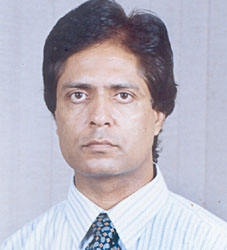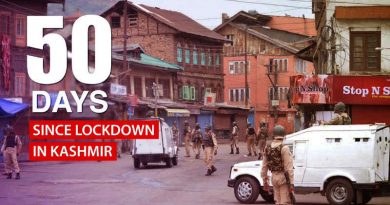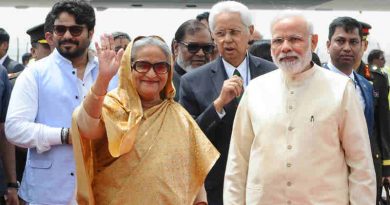Attack on Press Freedom: Journalist in Tajikistan Sent to Prison

According to the UN Human Rights Office in Central Asia, Mr Khairullo Mirsaidov – a well-known and respected independent journalist and leader of a renowned comedy ensemble – was sentenced to 12 years in prison on 11 July 2018.
The charges include embezzlement, wrongful reporting to law enforcement and document forgery – charges that were brought against him after he published an open letter addressed to authorities in which he accused a regional Government official of corruption.
The UN Human Rights Office in Central Asia said Monday it is deeply concerned about Mr. Mirsaidov’s imprisonment, which could severely intensify the stifling of journalistic activity in the country.
[ Global Warning Issued to PM Modi to Protect Press Freedom in India ]
“The extremely harsh and blatantly disproportional sentence against journalist Mr Khairullo Mirsaidov is yet another sign of an increasingly dire situation for the freedom of expression in Tajikistan,” said Mr. Ryszard Komenda, Head of the UN Human Rights Regional Office in Central Asia.
Over the past several years, Tajikistan’s authorities have accumulated a track-record of aggressive prosecution of independent journalists, human rights activists and lawyers for merely speaking out and pursuing their professions. This has led to wide-spread self-censorship and closure of independent news outlets, among other consequences.
The outcome of Mr. Mirsaidov’s trial is just the latest manifestation of this trend and moves Tajikistan even further from implementing the numerous recommendations it has received from the UN’s human rights mechanisms.
[ NHRC Dismisses Petition on Human Rights in Kashmir ]
In his 2016 visit, the Special Rapporteur on the promotion and protection of the right to freedom of opinion and expression recommended that Tajikistan strongly condemn the alleged harassment of journalists and noted that “without protection from violence and harassment of judicial authorities, it is impossible for journalists to perform their central role in providing public access to information in the country.”
The UN Human Rights Office calls upon Tajikistan to uphold its international human rights commitments, including those made during its 2016 Universal Periodic Review before the UN Human Rights Council to “ensure the freedom of expression, association, assembly and freedom of religion in accordance with international human rights norms.”
It adds that Tajikistan should review Mr. Mirsaidov’s sentence in order to ensure a trial outcome that is in coherence with the gravity of the alleged offence.





